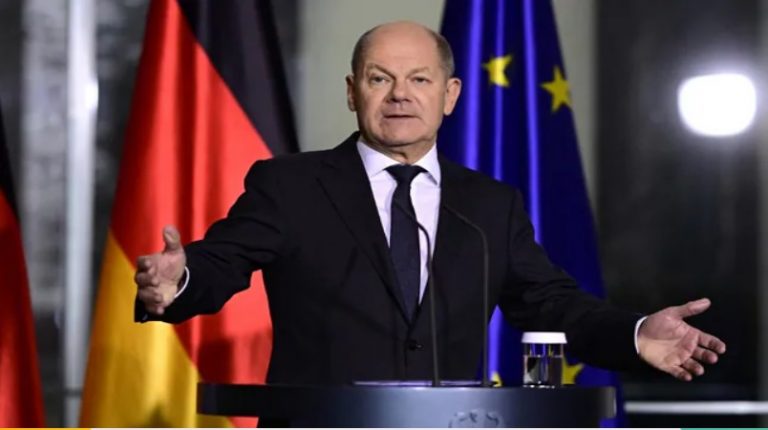
Germany is indeed heading for early elections after Chancellor Olaf Scholz lost a confidence vote in parliament. Scholz’s coalition government collapsed, leading to a vote where 394 MPs voted against him, while only 207 supported him. The early elections are scheduled for February 23, 2025.
This political turmoil comes at a challenging time for Germany, with economic struggles and geopolitical tensions. The upcoming elections will be crucial in determining the future direction of Europe’s largest economy. Scholz had called the vote, expecting to lose it, weeks after his coalition collapsed. Later Monday he asked President Frank-Walter Steinmeier to dissolve the legislature soon and ask voters to head back to the ballot box.
Although the center-left chancellor continues in a caretaker role and with a minority in parliament, the political turmoil threatens months of paralysis until a new coalition government is formed. Embattled Scholz, 66, lags badly in the polls behind conservative opposition leader Friedrich Merz who heads the Christian Democratic Union (CDU) of ex-chancellor Angela Merkel.
Register for Tekedia Mini-MBA edition 19 (Feb 9 – May 2, 2026): big discounts for early bird.
Tekedia AI in Business Masterclass opens registrations.
Join Tekedia Capital Syndicate and co-invest in great global startups.
Register for Tekedia AI Lab: From Technical Design to Deployment (next edition begins Jan 24 2026).
After more than three years at the helm, Scholz was plunged into crisis when his unruly three-party coalition collapsed on November 6, the day Donald Trump won re-election to the White House. The political turbulence has hit Germany as it struggles to revive a stuttering economy hammered by high energy prices and tough competition from China.
Olaf Scholz’s loss of the confidence vote and the subsequent call for early elections stem from several key issues:
Coalition Collapse: Scholz’s three-party coalition government, consisting of the Social Democratic Party (SPD), the Greens, and the Free Democratic Party (FDP), fell apart due to disagreements over fiscal policies. The FDP, led by Christian Lindner, opposed easing Germany’s strict debt rules to finance support for Ukraine and key infrastructure projects.
Economic Challenges: Germany is facing significant economic struggles, including a stalled economy and the need for massive investments in infrastructure and defense. Scholz’s proposals for increased spending were met with resistance from the opposition, particularly the conservative Christian Democratic Union (CDU), led by Friedrich Merz.
Political Strategy: Scholz called for the confidence vote, fully expecting to lose, as a strategic move to trigger early elections. This decision was seen as a way to potentially revive his party’s political fortunes and set a new course for the country.
Public Perception: The collapse of the coalition and the subsequent political instability have affected public perception of Scholz’s leadership. The upcoming elections will be crucial in determining the future direction of Germany’s political landscape. These issues have created a complex and challenging environment for Scholz and his party as they prepare for the early elections in February 2025.
Political scientist Claire Demesmay of Sciences Po Paris said Germany was now in a sweeping process of reorientation which is “feeding fears within society that are reflected on the political level”. “We can see a political discourse that is more tense than a few years ago. We have a Germany plagued by doubt.”
Since Scholz’s argumentative three-party governing coalition collapsed in November, he had been reliant on support from the opposition conservatives to pass any new laws, effectively rendering his administration a lame-duck government. Given Germany’s stalled economy and the global crises facing the West, staggering on until the scheduled election date of September 2025 risked being seen as irresponsible by the electorate.



